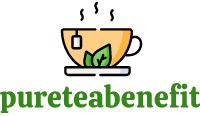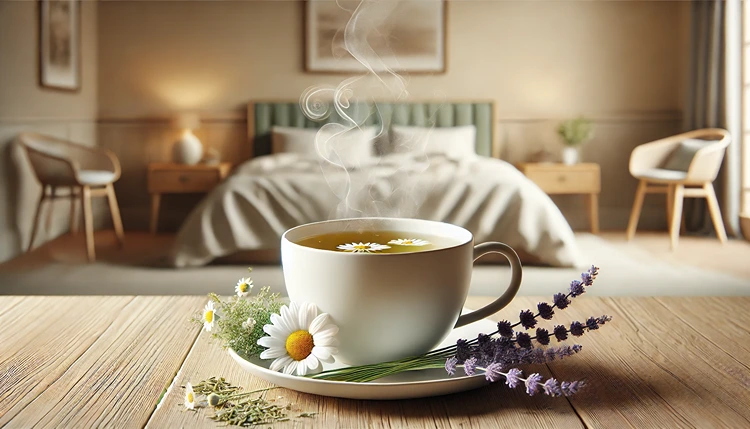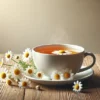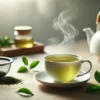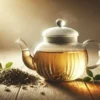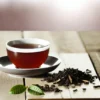Getting a good night’s sleep can feel impossible sometimes. Whether it’s work stress, restless thoughts, or just a bad habit of staying up too late, there’s always something keeping you from catching those much-needed Z’s. So, what’s the solution? Herbal infusion teas! They’ve been used for centuries to help people unwind and relax, leading to better, more restful sleep.
The magic behind herbal teas for sleep lies in their natural properties. Many herbs, such as chamomile, lavender, and valerian root, are known for their calming effects, making them the perfect bedtime companions. Plus, they’re caffeine-free, so you can sip them late into the evening without worrying about being up all night.
What Are Herbal Infusion Teas?
Herbal infusion teas are essentially drinks made by steeping various herbs, flowers, and plant roots in hot water. Unlike traditional teas (like green or black tea), herbal infusions don’t come from the Camellia sinensis plant, so they’re naturally caffeine-free. They’re made from an endless variety of plants, each offering its own unique health benefits and flavors. But for sleep, it’s all about choosing the herbs that soothe and relax.
Can Herbal Teas Really Help You Sleep?
The short answer: absolutely. Herbal teas have been trusted for centuries in many cultures as natural sleep aids. Different herbs contain compounds that interact with your brain and body to help you feel calm, lower anxiety, and prepare you for sleep.
For example, chamomile is widely known for its calming effects. The herb contains apigenin, an antioxidant that binds to receptors in your brain and helps reduce anxiety and initiate sleep. Similarly, valerian root works by increasing levels of gamma-aminobutyric acid (GABA), a neurotransmitter that promotes relaxation.
Helpful Hint:
To make the most of your herbal tea for sleep, drink it about 30-45 minutes before bed. This gives your body enough time to absorb the compounds and start winding down.
Top Herbal Infusions for Better Sleep
When it comes to choosing the best herbal teas for sleep, there are a few that really stand out. Let’s explore some of the most effective ones.
Chamomile: The Classic Relaxer
Chamomile is perhaps the most well-known herbal tea for sleep. Its light, floral flavor makes it a favorite bedtime drink, but its real power comes from its ability to calm the mind. Chamomile helps reduce stress and anxiety, which are often the culprits behind sleepless nights.
How Chamomile Works
Chamomile contains an antioxidant called apigenin. This compound binds to receptors in your brain that help reduce anxiety and promote sleepiness. It’s like your brain’s natural off-switch, gently telling your body it’s time to relax.
Lavender: Soothe Your Senses
Lavender isn’t just for your pillow spray! This fragrant herb is also a wonderful sleep aid when steeped into a tea. Its calming aroma and flavor are perfect for unwinding after a long day.
How Lavender Helps You Sleep
Lavender is known for reducing heart rate and anxiety. Drinking lavender tea before bed can help calm your mind and body, making it easier to fall asleep. It’s especially helpful for those who struggle with restless thoughts.
Valerian Root: The Sleep Booster
Valerian root might not be the most pleasant-smelling herb, but it’s incredibly effective for sleep. This powerful herb has been used since ancient times to combat insomnia and promote deep relaxation.
How Valerian Root Aids Sleep
Valerian root increases GABA in your brain, a neurotransmitter that reduces brain activity and makes you feel calm. It’s great for those who struggle with staying asleep through the night, helping you get into a deeper, more restorative sleep.
How to Brew the Perfect Cup of Herbal Tea for Sleep
Brewing the perfect cup of herbal tea is key to unlocking its full benefits. While each herb might have slightly different brewing requirements, there are a few general tips you can follow to ensure your tea turns out just right.
- Use fresh, high-quality herbs for the best flavor and potency.
- Steep your tea for at least 5-10 minutes to allow all the beneficial compounds to release.
- Cover your cup while steeping to keep the heat and aroma locked in.
- Avoid adding sugar or caffeine-rich ingredients if you’re drinking the tea before bed.
Lavender Chamomile Sleep Tea
Ingredients
- 1 teaspoon dried chamomile flowers
- 1 teaspoon dried lavender flowers
- 1 cup boiling water
Instructions
- Add chamomile and lavender to a tea strainer or teapot.
- Pour boiling water over the herbs and cover the cup.
- Let steep for 5-10 minutes.
- Strain and enjoy 30 minutes before bedtime for best results.
Best Brewing Times for Popular Herbal Sleep Teas
| Herb | Ideal Steep Time | Best Served |
|---|---|---|
| Chamomile | 5-10 minutes | Warm |
| Lavender | 10-12 minutes | Warm or with a dash of honey |
| Valerian Root | 5-7 minutes | Warm, blend with another tea to mellow taste |
| Passionflower | 7-10 minutes | Warm, preferably before bed |
| Lemon Balm | 5-8 minutes | Warm, great as part of a blend |
Helpful Hint:
If you find the taste of valerian root too strong, try blending it with a milder herb like chamomile to balance out the flavor.
More Herbal Teas to Help You Sleep Like a Baby
While chamomile, lavender, and valerian root are the most popular herbal teas for sleep, they aren’t the only ones. There are plenty of other herbs that can help calm your mind and ease you into a restful night. Let’s explore a few more options.
Lemon Balm: The Gentle Stress Reliever
Lemon balm is a lesser-known herb that’s part of the mint family. It has a mild, lemony flavor that makes it a great addition to your nighttime tea routine. What’s even better? It’s fantastic for reducing stress and promoting relaxation.
How Lemon Balm Works
Lemon balm contains compounds that have a calming effect on the nervous system, making it easier to unwind at the end of the day. Studies show that lemon balm can help reduce symptoms of anxiety, which often interfere with sleep.
Passionflower: Nature’s Tranquilizer
Passionflower may sound exotic, but it’s actually a very effective herb for treating insomnia and anxiety. This beautiful plant has been used for centuries as a natural remedy to calm the mind and help people drift off to sleep.
How Passionflower Helps You Sleep
Passionflower increases levels of GABA in the brain, similar to valerian root, which helps reduce brain activity and makes you feel more relaxed. It’s especially helpful if you find yourself tossing and turning with restless thoughts at night.
Helpful Hint:
If you’re dealing with a lot of stress or racing thoughts before bed, try a blend of passionflower and lemon balm. These two herbs work together to create a soothing, calming effect that’s perfect for bedtime.
Peppermint: Cool, Calm, and Collected
Peppermint tea is often associated with digestion, but it’s also great for helping you relax. While it doesn’t have sedative properties like some other herbs, peppermint’s soothing aroma and muscle-relaxing effects can help you wind down after a stressful day.
How Peppermint Affects Sleep
Peppermint tea is a great option if you’re looking to relax both your body and mind. Its cooling effect can relieve tension headaches and muscle stiffness, allowing you to get comfortable before bed.
What Time Should You Drink Herbal Tea for Sleep?
Timing is everything when it comes to drinking herbal tea for sleep. While these teas are caffeine-free and won’t keep you up, it’s best to drink them 30 to 45 minutes before you plan to go to bed. This gives your body time to absorb the beneficial compounds and start the relaxation process.
If you drink your tea too close to bedtime, you might end up making a few trips to the bathroom during the night. Sipping your tea earlier allows your body to relax without the interruption of a midnight bathroom run.
How Much Herbal Tea Is Safe Before Bed?
Most herbal teas are perfectly safe to drink every night. However, it’s a good idea to stick to 1-2 cups in the evening. Drinking too much can lead to frequent trips to the bathroom, and in rare cases, certain herbs might cause mild side effects like nausea or dizziness if consumed in large quantities.
If you’re new to drinking herbal teas, start with just one cup and see how your body reacts. Once you find your perfect balance, you’ll be all set for a peaceful night’s sleep.
Creating a Bedtime Routine With Herbal Tea
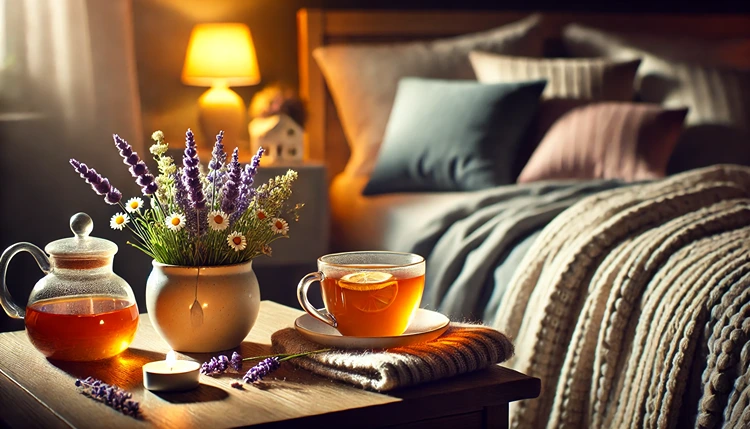
A bedtime routine can work wonders for improving your sleep quality, and incorporating herbal tea is an easy and enjoyable way to make that happen. Creating a consistent routine signals to your body that it’s time to unwind, making it easier to fall asleep.
How to Build a Calming Evening Ritual
Here’s a simple routine that you can follow to prepare your mind and body for a good night’s sleep:
- Turn off electronics at least 30 minutes before bed. The blue light from your phone or TV can interfere with your body’s natural sleep signals.
- Make a cup of herbal tea and sip it slowly. Focus on the warmth of the tea and the soothing flavors to help calm your mind.
- Do some light stretching or deep breathing exercises to release any physical tension in your body.
- Read a book or listen to calming music to further relax your mind.
Following this simple routine every night can help you train your body to get ready for sleep at the same time, making it easier to fall asleep naturally.
Are There Any Side Effects of Drinking Herbal Tea for Sleep?
For the most part, herbal teas are safe for most people to drink. However, if you’re pregnant, breastfeeding, or on medication, it’s always a good idea to talk to your doctor before adding herbal teas to your routine. Some herbs, like valerian root, can interact with medications or cause mild side effects like dizziness or headaches in some individuals.
That said, the majority of people can safely enjoy a cup of herbal tea before bed without any problems. If you’re concerned, start with milder herbs like chamomile or lemon balm and see how your body reacts.
Best Herbal Tea Blends for Sleep
If you can’t decide on just one herb, why not try a blend? Many herbal tea brands offer pre-mixed blends that combine multiple sleep-inducing herbs for maximum relaxation. Here are a few combinations that are especially effective for promoting sleep:
- Chamomile + Lavender: A classic combination that soothes both the mind and body.
- Valerian Root + Passionflower: For those who need a little extra help staying asleep through the night.
- Lemon Balm + Peppermint: Great for relaxing your muscles and calming your nerves before bed.
Blends like these combine the best of each herb, offering a powerful way to wind down and get ready for sleep.
Benefits and Drawbacks of Herbal Infusion Teas for Sleep
Pros
- Natural remedy without harsh chemicals or additives.
- Calms the mind and reduces stress levels.
- Caffeine-free, ensuring it doesn’t disrupt sleep cycles.
- Many varieties available, offering multiple health benefits.
- Helps establish a calming bedtime routine.
Cons
- May take time to see noticeable effects on sleep.
- Some herbs can cause allergic reactions in sensitive individuals.
- Frequent consumption might lead to trips to the bathroom at night.
- Certain herbal teas may interact with medications.
- Not all herbal teas work equally for everyone, requiring some experimentation.
FAQs
Wrapping Up
Herbal infusion teas are a fantastic, natural way to improve sleep and relaxation. Whether you’re dealing with stress, anxiety, or just struggling to fall asleep, these caffeine-free teas offer an easy and enjoyable solution. From chamomile’s soothing effects to valerian root’s sleep-promoting properties, you have a wide variety of options to choose from.
